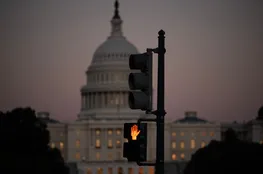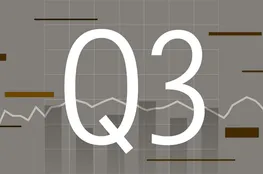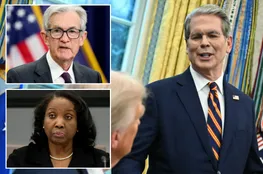Since 1928, the S&P 500's performance in the months leading up to a U.S. presidential election has been a dependable predictor, with an 83% accuracy rate favoring the incumbent party. If the index rises, the incumbent party typically wins, while a decline suggests the opposition will prevail. This time, however, the market's signal, which would indicate a Kamala Harris victory, is being scrutinized due to unusual economic and political conditions that might disrupt its historical reliability.
History reveals that a stock market upswing in the three months before an election has coincided with the incumbent party winning 80% of the time. Conversely, a market drop correlates with an opposition win 89% of the time. With the S&P 500 achieving an 8% gain since August, analysts note that if the gain holds firm until Election Day, it appears likely Harris could emerge victorious. Yet, parallels with the election of 1968 raise concerns about the signal's accuracy for 2024.
That year, the election dynamics and economic policies closely mirror today's environment, including a Vice Presidential switch after an incumbent didn't run and significant Federal Reserve interventions. Both eras also feature a public yearning for change, with 1968's opposition to the Vietnam War resembling contemporary discontent around inflation and immigration. According to Sam Stovall of CFRA Research, such dynamics may reflect 'replacement relief' rather than supporting incumbent reelection, hinting at why the market may falter as a predictor.
Additionally, this year's market is significantly influenced by unique factors like the artificial intelligence boom, which complicates political predictions. Market experts such as Jay Hatfield, CEO of Infrastructure Capital Advisors, argue that these factors make the market less reliable for predicting election outcomes. While the broad S&P 500 suggests a Harris win, other financial indicators hint otherwise. Investments aligned with a Trump presidency, including bitcoin and shares of Trump-related entities, have surged, hinting at a possible Republican victory.
Billionaire investor Stanley Druckenmiller even remarked recently that the market seems confident in a Trump win. The 2020 election serves as a stark example of the signal's potential failure, with a rising S&P 500 suggesting a Trump victory that ultimately never materialized, resulting in a Biden win instead.
























